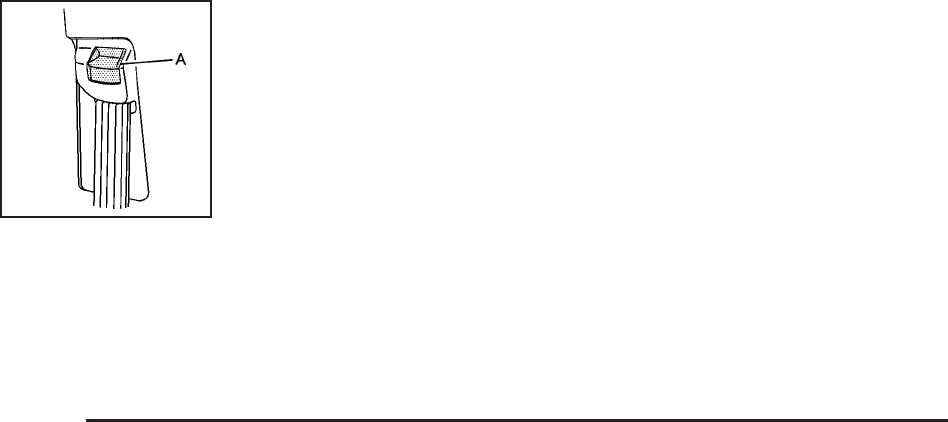
Shoulder Belt Height Adjustment
The vehicle has a shoulder belt height adjuster for the
driver and right front passenger seating positions.
Adjust the height so that the shoulder portion of the belt
is centered on the shoulder. The belt should be away
from the face and neck, but not falling off of the shoulder.
Improper shoulder belt height adjustment could reduce
the effectiveness of the safety belt in a crash.
To move it down, push
down on the button (A) and
move the height adjuster
to the desired position.
You can move the height
adjuster up by pushing up
on the shoulder belt guide.
After the adjuster is set to the desired position, try to
move it down without pushing the button to make sure
it has locked into position.
Safety Belt Pretensioners
This vehicle has safety belt pretensioners for the
front outboard occupants. Although the safety belt
pretensioners cannot be seen, they are part of the safety
belt assembly. They can help tighten the safety belts
during the early stages of a moderate to severe frontal,
near frontal, or rear crash if the threshold conditions for
pretensioner activation are met. And, if the vehicle has
side impact airbags, safety belt pretensioners can help
tighten the safety belts in a side crash or a rollover event.
Pretensioners work only once. If the pretensioners
activate in a crash, they will need to be replaced,
and probably other new parts for the vehicle’s safety
belt system. See Replacing Restraint System Parts
After a Crash on page 1-81.
Rear Safety Belt Comfort Guides
Rear shoulder belt comfort guides may provide added
safety belt comfort for older children who have outgrown
booster seats and for some adults. When installed on
a shoulder belt, the comfort guide positions the shoulder
belt away from the neck and head.
1-34


















